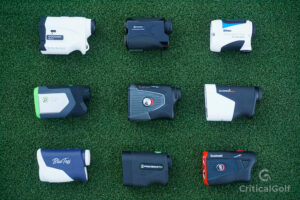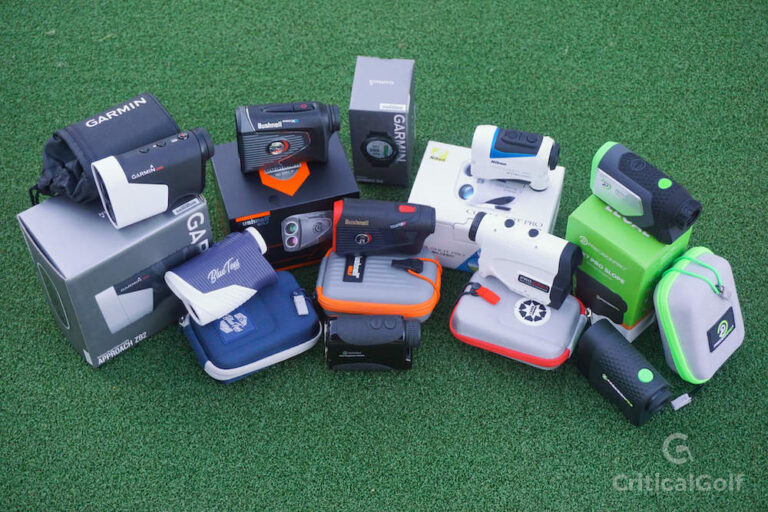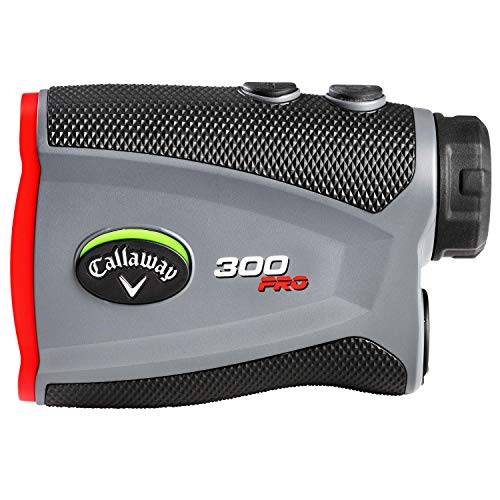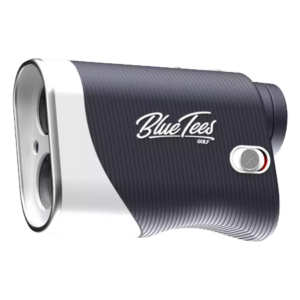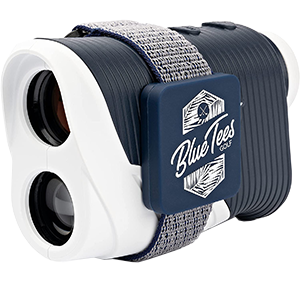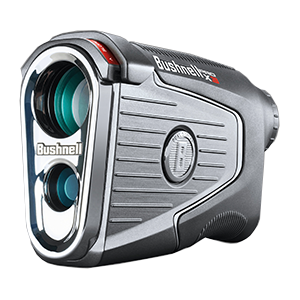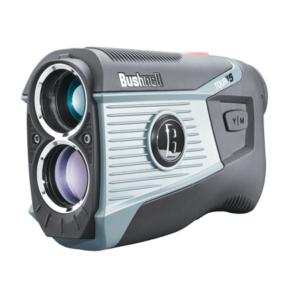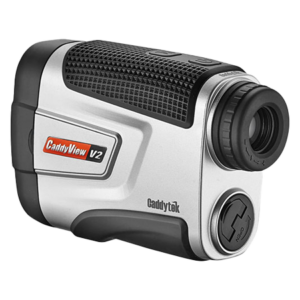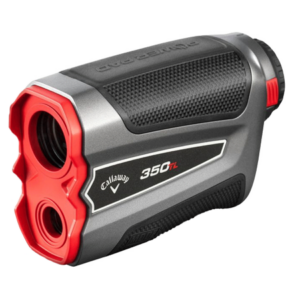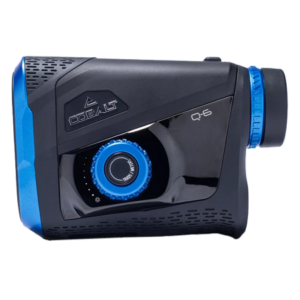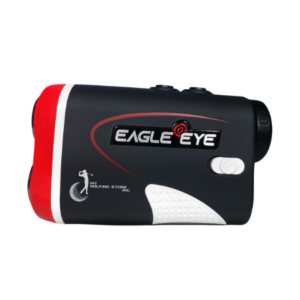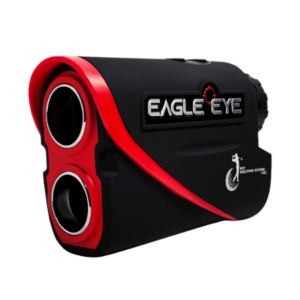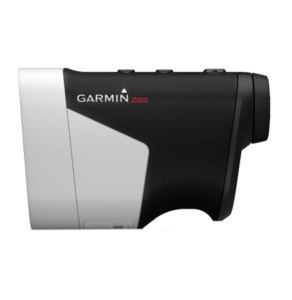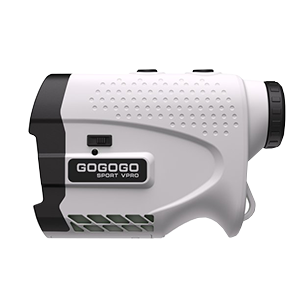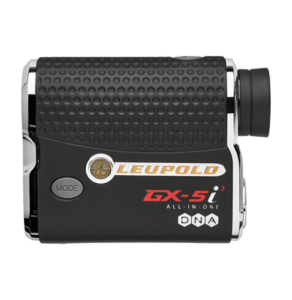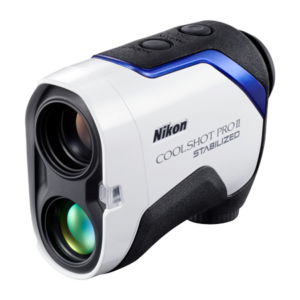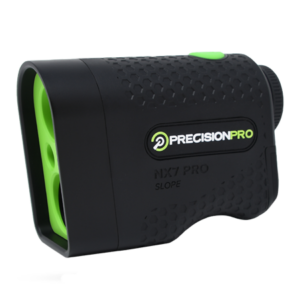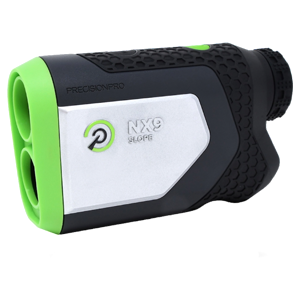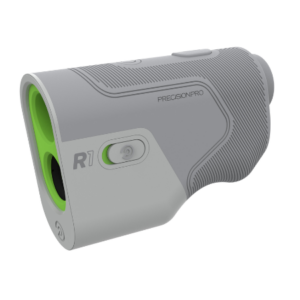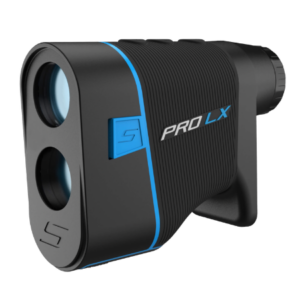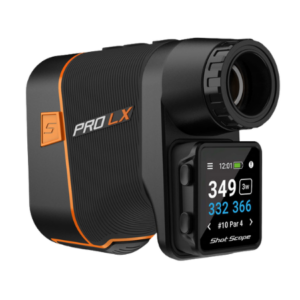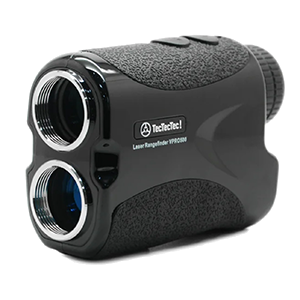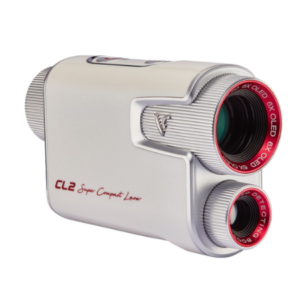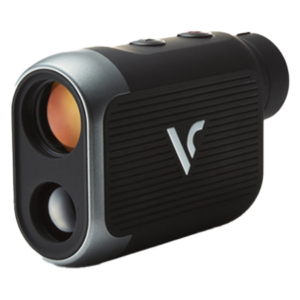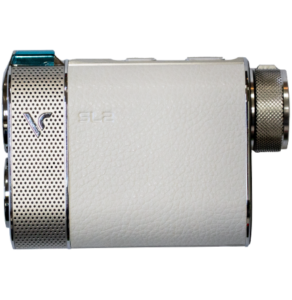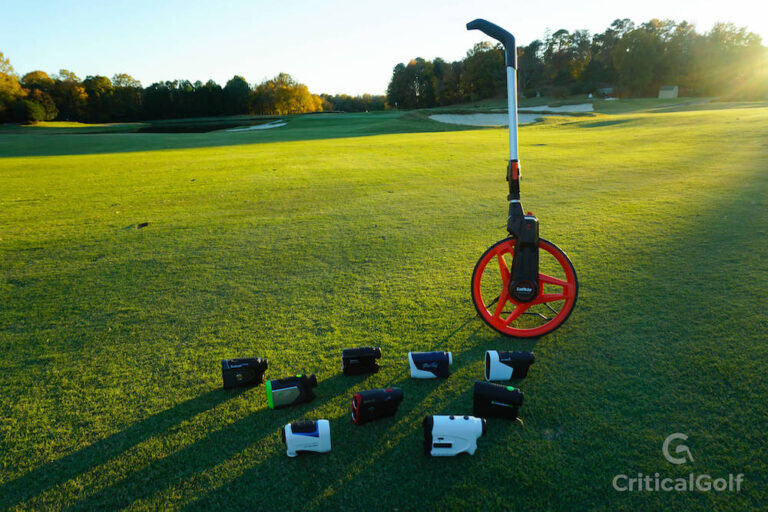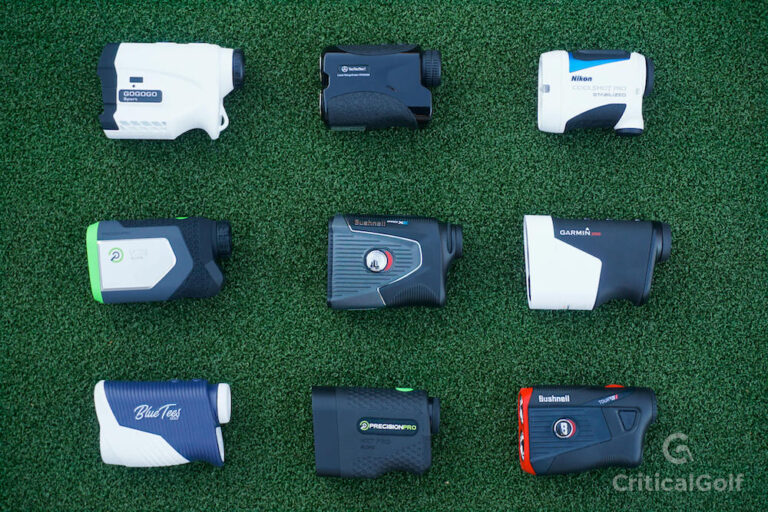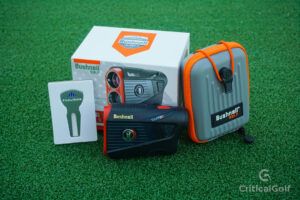Golf Rangefinder vs. Golf GPS (Or Both?)
One question that I get asked all the time is whether or not it makes sense to have a GPS Rangefinder, GPS watch, or a traditional laser rangefinder. If you have noticed, with models like the Garmin Approach Z82, you can get a combination of both a GPS unit and a high quality rangefinder.
In the end, you are the golfer that needs to make the club selection. If you can do that with one number directly to the pin, then the rangefinder is for you. If you are a player that needs more information and feels like the front, back, and middle yardages are very important, then the GPS is better.
Recently I have been playing some golf using my traditional rangefinder and adding in a golf GPS app. It’s been a good way to get a better feel for certain shots and the adjusted distance using slope while also reading from the GPS. However, it’s a lot of information to take in, probably more than I need.
Golf Rangefinder Terminology: Words To Know
One of the things I noticed while reviewing these different rangefinders is that there is a whole list of golf rangefinder terminology that is really important to understand. As I did research for the rangefinder review, I found myself trying to figure out what some of these terms mean and how I can apply them to the product that I need most. Here are a few shortcuts that I thought may help you. If you purchase the Nikon Coolshot Pro ii, a Callaway rangefinder, or even the Shot Scope, the terminology will likely be relatively close.
Slope: the adjusted distance for downhill shots, or uphill shots, this is not technology that is USGA legal for tournament play, but it’s perfectly fine to use it during practice.
Jolt Technology: Jolt technology is great for those with shaky hands; the rangefinder will buzz or vibrate when it finds the pin, so you won’t have any questions about the overall number you got.
Tournament Mode: for golf rangefinders with slope technology, you can turn this technology on and off so that it is legal to use in a tournament.
Scan Mode: rangefinders with scan mode allow you to san the general golf hole and sometimes get more than one yardage; this is different than a pin seeker mode that specifically scopes out the pin.
Slope Switch and Slope Compensation: slope switch is the ability to turn the slope on and off; as we have mentioned the slope technology is not legal on the golf course, and a slope switch helps you play with your rangefinder even if it has a slope technology.
Pulse Vibration: pulse vibration allows you to determine that you have hit your intended target.
Pinseeker: Pinseeker is the mode that most golfers will use as it helps them find the pin exactly, this is different than scan mode or continuous scan, and instead, your rangefinder will be looking out for the pin itself.
Frequently Asked Questions
Here are a few of the most commonly asked questions about the best golf rangefinders on the market. Sometimes the key is not just to find the best rangefinder but also to find something you enjoy using. If technology, features, and advancements frustrate you, there are plenty of simple choices out there that can easily get you an accurate and straightforward number to the pin.
What is the most accurate rangefinder for golf?
The most accurate rangefinder for golf is the Bushnell Pro XE. With the Bushnell Pro XE, not only do you get information about the slope and how it will impact your score, but there are also details about the weather and elevation that will impact your distance in the fairway. Bushnell put a lot of time, effort, and money into this accurate rangefinder, and in the end, they came out with a really great product.
What is the best golf rangefinder 2022?
The best golf rangefinder in 2022 is the Bushnell Pro XE. When you look at all of the features this unit has, as well as its impressive performance, durability, and warranty; there is just nothing else that compares. It is a bit higher priced, and that is something that can turn some golfers away, but you won’t be rangefinder shopping for quite some time if you invest in the Bushnell Pro XE.
What is the best cheap golf rangefinder?
The best cheap golf rangefinder is GoGoGo GS24. If you are in the market for a fairly priced rangefinder that is accurate and has almost all of the same functionality as a premium rangefinder, the GoGoGo GS24 is a great solution. Of course, considering the price range on this model, there are a few things that could be better, but from a price standpoint, you can’t beat it.
Do rangefinders work in the rain?
Rangefinders will work in the rain, but you must be aware of whether or not your rangefinder is waterproof. Most rangefinders do not cause any issues for golfers that are trying to get a number to a pin in a light drizzle, but in a downpour, you may struggle with accuracy. Overall, if the rain is bad enough that the rangefinder stops working, you may want to get off the course!
Will rangefinders slow down play?
Rangefinders will speed up play. In fact, the best golf rangefinders on the market are much faster than a GPS unit, and they can give you yardage to the pin in a matter of seconds. For those that like to play a quick round of golf, don’t expect the rangefinder to slow you down.
Do beginners need a golf rangefinder?
Beginner golfers can benefit greatly from a rangefinder. In addition, beginner golfers should consider a rangefinder with slope. The slope technology makes it considerably easier for players to get an idea as to how uphill and downhill shots work. Beginners should be starting to learn about which clubs they need to hit certain distances, and the rangefinder helps with that.
How long do rangefinders last?
On average, you can expect a laser rangefinder to work for about 4 years. If you take great care of it and purchase something that is premium from the start, you could see 5-7 years from a rangefinder. For golfers that play a lot of golf, there is no doubt you will get your money’s worth out of a golf rangefinder. In the end, find a model that has good value, but always keep longevity in mind as it is important in the end.
Final Thoughts
When we first started this rangefinder testing, we figured there would be some tough-to-beat brands. Now that all is said and done and we have had these rangefinders in play for several months, there definitely are some standouts. However, it comes down to your personal needs. As rangefinders continue to get more popular and grab a larger market share, it will be interesting to see how the top brands retain their position.
Play well!
